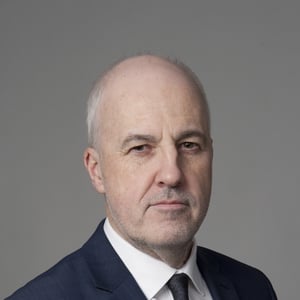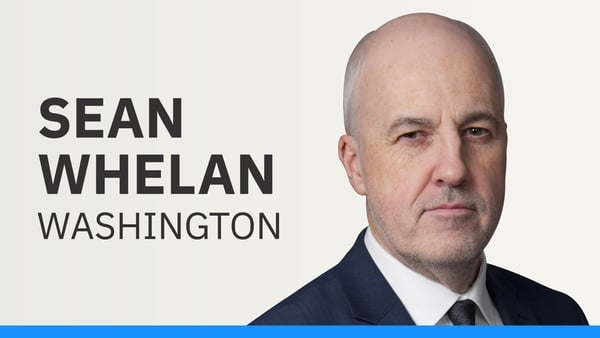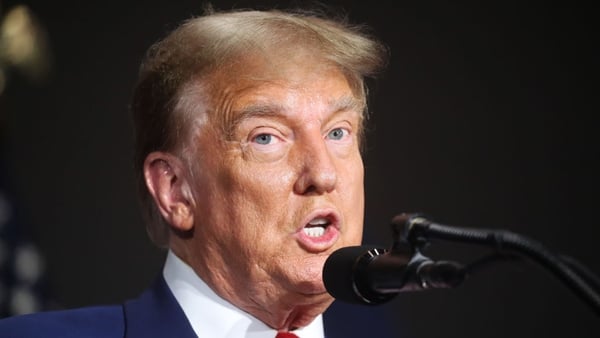Tonight, the coronavirus epidemic in the United Kingdom became very real.
The Prime Minister, Boris Johnson - one of the best known figures in the land - is now stricken with Covid-19.
And everyone knows Boris - or at least feels they do: it's one of the secrets of success of this highly able political communicator that people think they kind of know him, and use his first name, almost as if they do.
So the fact that he is now in intensive care - by definition, seriously ill - will have hit home to a lot of people how serious this disease is, and how it is blind to rank, wealth or position.
Boris Johnson was moved into an intensive care unit at 7pm this evening after his condition deteriorated.
That was 23 hours after he first arrived at St Thomas' Hospital, one of London's biggest university teaching hospitals.
It is just four minutes' drive from the prime minister's residence in Downing Street, lying just at the southern end of Westminster bridge, directly opposite the Houses of Parliament.
The NHS facility is one of the best places he could be to get the care he needs.
According to his spokesman, Mr Johnson is conscious and is not on a ventilator - but one is available for him in the intensive care unit should he need it.
The London Times newspaper reported that the prime minister received oxygen treatment when he arrived in St Thomas' yesterday evening.
His spokesman did not confirm this report, but neither did he deny it.
Tonight the BBC reported that Mr Johnson was given oxygen before being taken to the Intensive Care Unit.
Reports this morning from Downing street, from ministerial colleagues like Robert Jenrick, the housing minister who was on the media round, all spoke of the prime minister having spent a comfortable night, remaining in contact with colleagues and even working on his "red boxes" - the piles of documents all minsters must work through.
His move to hospital was described as a "precaution", it was not "an emergency", he did not travel in an ambulance.
When he was taken to hospital yesterday, Mr Johnson asked Dominic Raab, the Foreign Secretary, to take charge of running the cabinet, and in particular the daily Covid-19 sub committee.
Mr Raab took the daily briefing at 5pm today, again saying the prime minister was working on his papers, etc.
In fact, we now know at that very moment his condition was worsening.
Tonight it is being put about that far from working through mountains of papers, Mr Johnson was kept informed of government business, rather than taking decisions.
Again, Downing Street said the move to ICU was "a precaution".
Mr Raab is now a sort of interim prime minister, keeping the government machine moving, but lacking the authority to take big decisions.
Officially Mr Johnson is still the prime minister, but clearly cannot do the work of a prime minster.
Indeed, if he is in an intensive care unit he shouldn't even try to do any part of the job: his focus now must be his own health.
Mr Johnson's incapacity will test the British political system.
Officially the cabinet takes collective decisions, and the prime minster is "first among equals", so in theory the other ministers should just get on with the job.
But of course the office of prime minister has acquired a great deal of political clout down the centuries, and clearly directs the business of government.
Not having a deputy prime minister, or Tánaiste, or vice president, means the system will now have to improvise - and hope the prime minister recovers soon.
The immediate challenge this decapitated cabinet now faces is the management of the Covid-19 outbreak.
The surge of patients entering the health system was expected to peak in a week to ten days' time, although officials are briefing today that it may be a bit longer.
Or maybe not - nobody is really sure.
All they do know is that all the key political decisions this - and every other government around the world is making - involve trade off that cost human lives.
It is against this extremely challenging backdrop that the cabinet will have to govern the country without a final arbiter, a dominant figure, an undisputed front man for the British state, put there with a mandate from the electorate.
But like any other victim of this disease, Boris Johnson's tale is a personal one.
He is part of a competitive but close-knit family, and his partner, Carrie Symonds, is carrying the couple's first child.
She is herself recovering from a mild form of the virus.
But the man she is set to marry this summer is in intensive care, battling a virus that has claimed the lives of more than 5,000 of his fellow countrymen and women.




